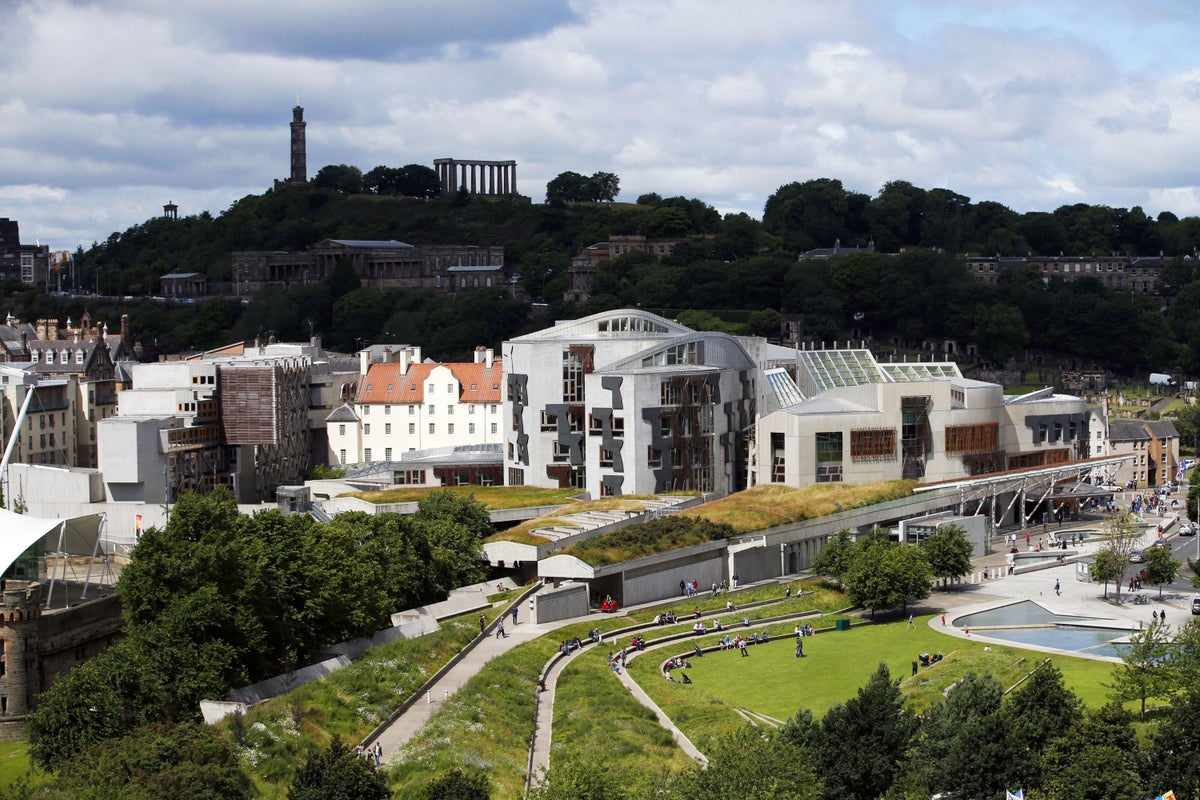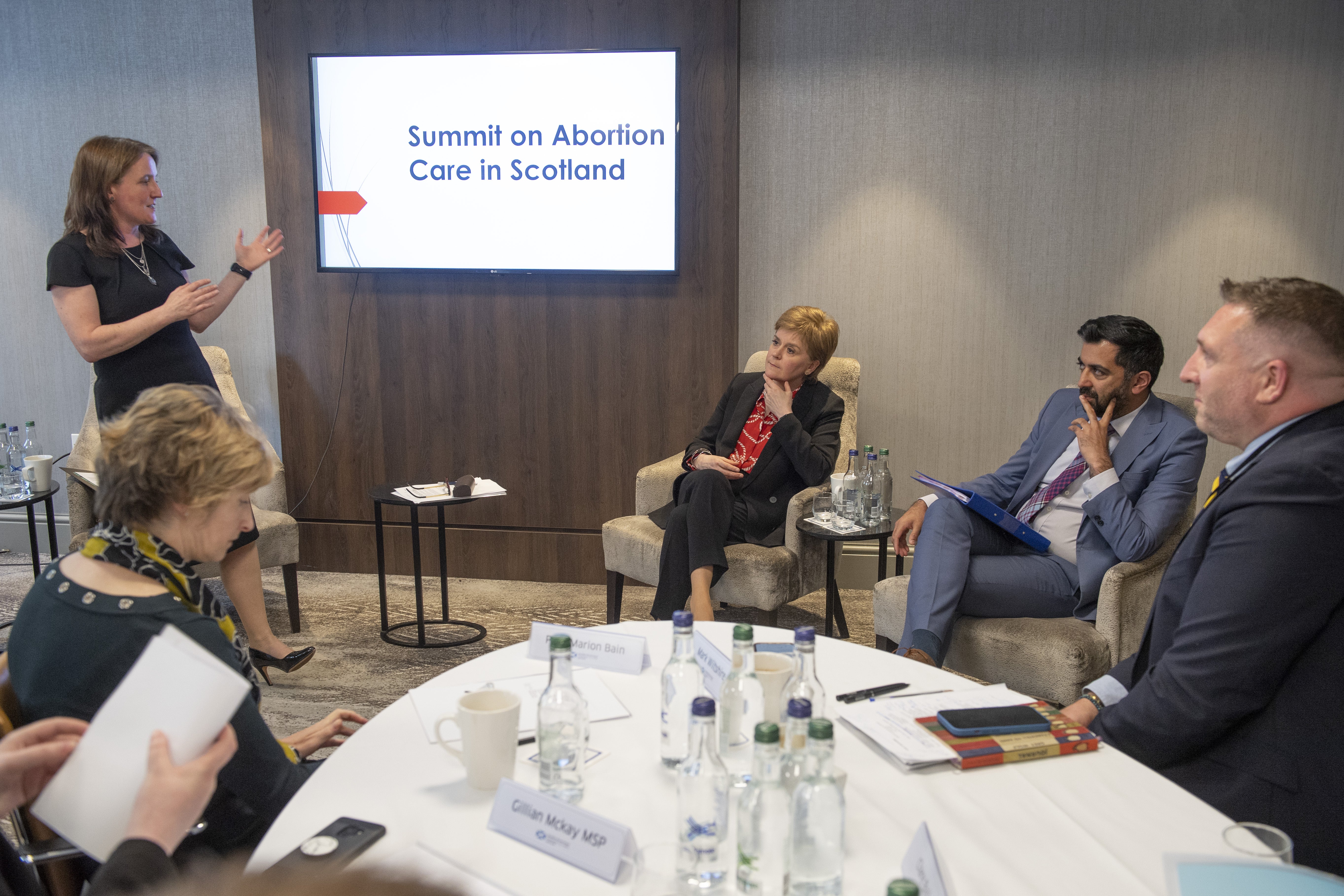
Recess should be delayed to allow for crucial legislation on buffer zones near abortion clinics to be passed, a Scottish Labour MSP has said.
South Scotland MSP Carol Mochan said action “cannot come soon enough” over legislation that would see buffer zones placed outside services providing abortions.
Her comments came after First Minister Nicola Sturgeon hosted a summit on improving access to abortion services, in Edinburgh, on Monday.
Ms Mochan, Scottish Labour’s spokeswoman on women’s health, said: “The legislation is a welcome step in the right direction for women’s rights and protecting our freedom to choose.
“Following the terrible news from the US last week, I am pleased that Scotland has decided to listen to women on this issue.
“We now need to see a clear, comprehensive action plan from the First Minister, or the important steps taken at the summit will be in vain.

“Those who attended this meeting, and the many women across Scotland who have provided testimony, deserve to see a timetable from the SNP as to when these buffer zones will be implemented.
“By treating this as emergency legislation and recalling recess, the First Minister could seize the moment and send a message across the world – women’s rights are human rights.”
Representatives from local government, third sector organisations, Police Scotland, the NHS and campaigners were brought together for the summit, in addition to cross-party representation.
Discussions were held over the options available for legislative mechanisms to establish buffer zones around clinics in response to anti-abortion vigils taking place as women attend to access services.
The First Minister said there was “no doubt” that the long-term solution is to introduce national legislation, though she said there was a need to get the balance right for such action to withstand “inevitable” challenges from European human rights legislation.
She said there is “work to be done” over short-term solutions, with local authorities indicating at Tuesday’s summit a willingness to work with the Scottish Government in exploring the use of local byelaws.
We wouldn't tolerate for any other kind of healthcare, people, as they enter a hospital or a clinic, being subject to intimidation or harassment— First Minister Nicola Sturgeon
Ms Sturgeon said that Police Scotland were “very engaged” in the issue, but she said she could not instruct them to take action against protesters outside healthcare services.
“The police are operationally independent, I can’t instruct the police to take action,” she said.
“I think the concern that the police have, and I think it is a well-founded concern, is that these are not solutions that can be applied in a blanket way.”
Women’s health minister Maree Todd echoed the feeling of success at the outcome of the summit, telling the PA news agency she was confident progress will be made.
But she said that the “devil is going to be in the detail” when it comes to creating legislation to tackle the issue in a way that is compliant with European human rights.
Ms Todd also spoke of her disappointment after her colleague, SNP MSP John Mason, suggested women were being put on a “conveyer belt” and were ill-informed when accessing abortion services.
Mr Mason has voiced his opinions on the matter in the past, having said he attended an anti-abortion vigil, and claiming abortion is “seldom essential or vital”.
In an interview with Radio Clyde, Mr Mason said it was a “stretch” to refer to vigils held outside healthcare clinics as “protests”, and suggested there had been “some cases” where women have been provided with “very little information” on the process by healthcare professionals.
Ms Todd said she found the comments to be “quite offensive”.
She added that while she “profoundly” disagrees with Mr Mason’s views, he has a right to express them – but said she felt he is “very much in a minority in our party, and probably in a minority in Scotland”.
The First Minister also spoke of Mr Mason’s right to his own views, but said: “I vehemently disagree with John Mason on this issue. I am very strongly pro a woman’s right to choose.
“I understand that people take a different view. But actually, this is not just about that. This is about access to healthcare.
“We wouldn’t tolerate for any other kind of healthcare, people, as they enter a hospital or a clinic, being subject to intimidation or harassment, and we shouldn’t tolerate it, in my view, for women accessing abortion services.”







